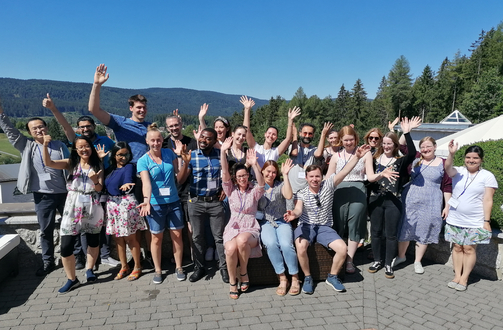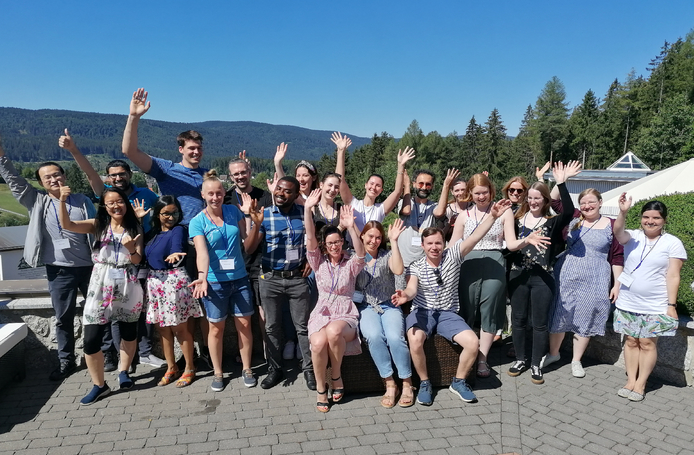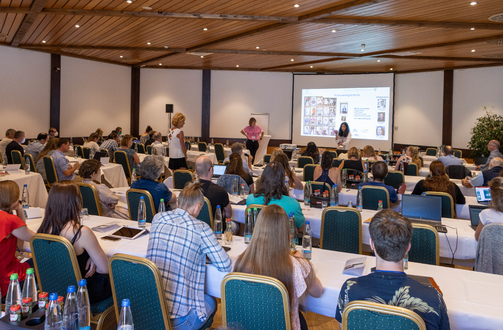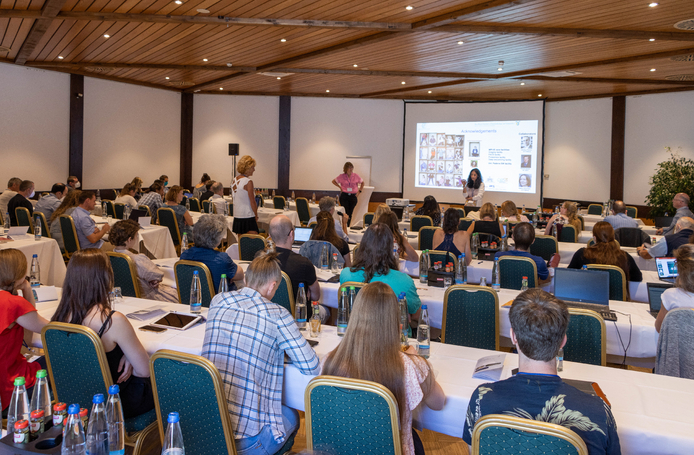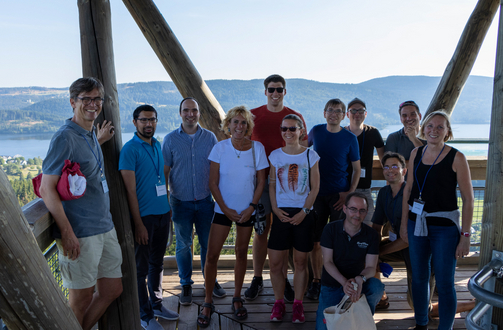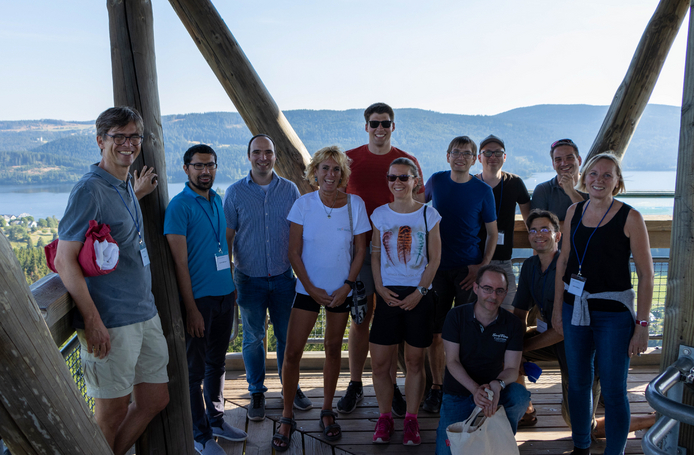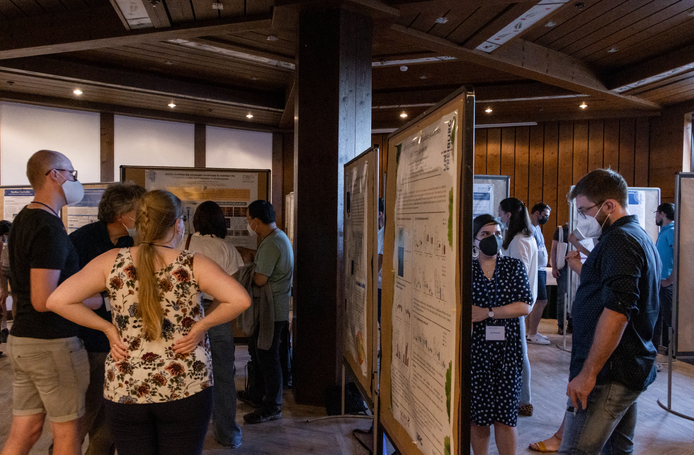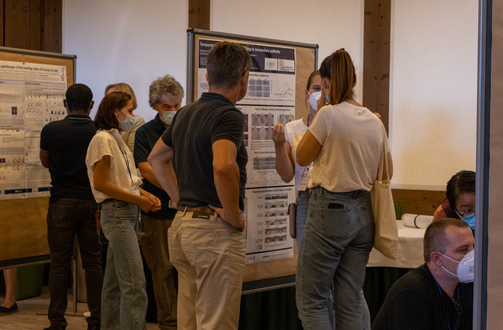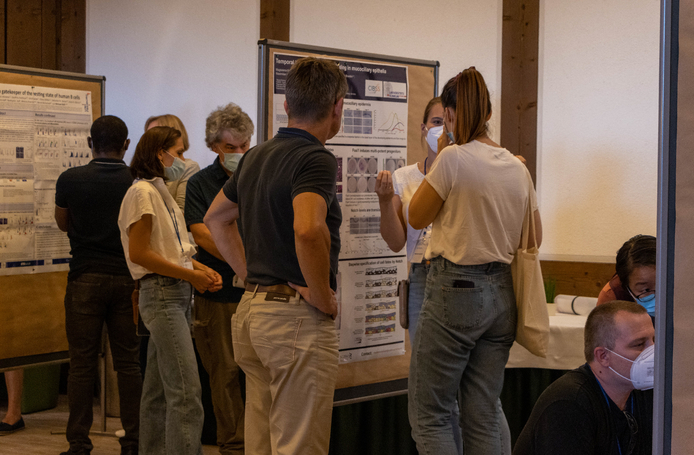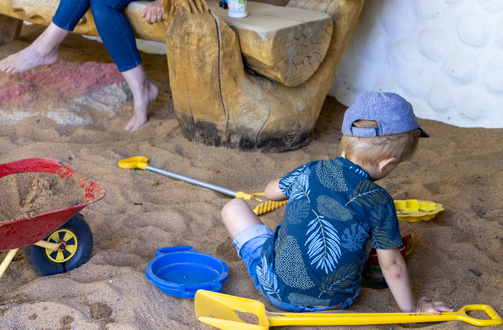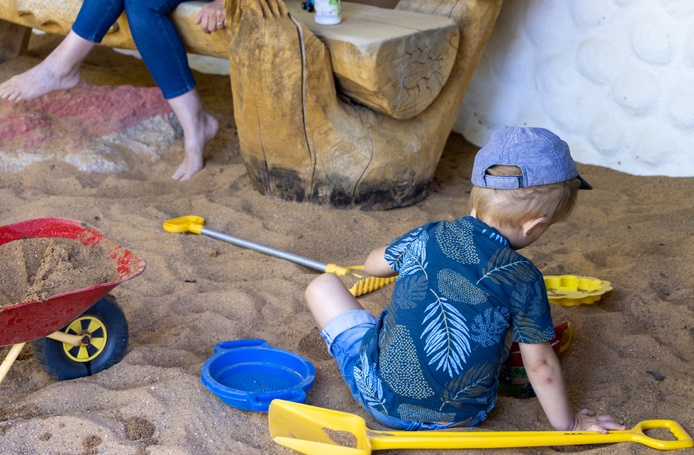At this year's retreat of the CIBSS Cluster of Excellence, it again became clear how diverse the cluster’s research disciplines are – and how important the resulting interdisciplinary collaborations are for understanding and controlling biological signals across scales. This year's retreat was held in attendance for the first time since 2019, and gave the more than 80 CIBSS scientists who were present an opportunity to network extensively with colleagues from other departments and career stages. "Being part of this community is a great benefit, especially for those who have not been at the University of Freiburg for long," says Prof. Dr. Jürgen Kleine-Vehn, who himself only started conducting research in Freiburg in 2020.


Signalforschung mit Ausblick
Der CIBSS Retreat am Schluchsee gab neue Impulse für die Forschung im Exzellenzcluster
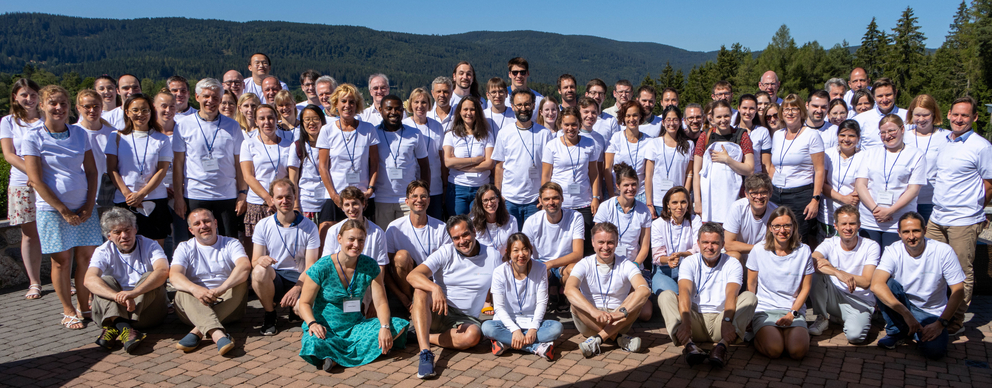
The current results from the projects that were presented during the scientific sessions of the two-day retreat illustrated how research in CIBSS benefits from scientific exchange and expertise at the Freiburg site. "Outstanding examples of cross-scale signaling research were presented, and the focus of the studies was clearly on exploring the integration of signaling processes" explained Prof. Dr. Carola Hunte, member of the CIBSS speaker team. The further development of innovative technologies, such as machine learning and new optogenetic methods, as well as the successes and potentials of transferring signal research into innovative applications were vivedly discussed. "CIBSS delivers on its promise to advance biological signaling research," said Prof. Dr. Wilfried Weber, member of the CIBSS speaker team, summarizing impressions from the retreat. "This is also reflected in the steadily increasing number of high-level publications from CIBSS projects." Open discussion sessions also focused on how the cluster's research priorities should develop in the future and how networking within the cluster as well as internationally can be further intensified. "Such discussions are essential to the research process," Weber said.
Awards for three CIBSS scientists
During the retreat, the recipients of the CIBSS Awards 2022 and the CIBSS InteGREATor Awards were honored: Prof. Dr. Nicola Iovino, Dr. Frederike Hartl and Alexia Tasca.
With the CIBSS Award, each year the Cluster's Board of Directors, together with the Scientific Advisory Board, honors a particularly important publication that exemplifies integrative signaling research at CIBSS. The CIBSS InteGREATor Award honors one PhD student and one postdoc who are first authors on an outstanding CIBSS publication early in their scientific career.
Iovino received this year's CIBSS award for the publication "HP1 drives de novo 3D genome reorganization in early Drosophila embryos", which appeared in the journal Nature in 2021. In the publication, Iovino and his collaborative partners at the Max Planck Institute for Immunology and Developmental Biology and institutes in Basel and Milan describe how a specific protein controls the epigenetic changes that occur during embryonic development in fruit flies.
Dr. Frederike Hartl from the research group of CIBSS member Prof. Dr. Susana Minguet received the CIBSS InteGREATor award for her publication "Noncanonical binding of Lck to CD3ε promotes TCR signaling and CAR function", which appeared in the journal Nature Immunology in 2020. The study describes a molecular mechanism that controls the activation of T cells. Targeting the activation of these immune cells is one of the research priorities in CIBSS and could help to better fight cancer cells. The newly discovered process is a promising potential lever for such activation.
Alexia Tasca from Prof. Dr. Peter Walentek's group received the CIBSS InteGREATor award for the publication "Notch signaling induces either apoptosis or cell fate change in multiciliated cells during mucociliary tissue remodeling", published in 2021 in the journal Developmental Cell. In it, they describe that during embryonic development of clawed frogs, even highly differentiated cells are able to develop into other cell types, and that this process is controlled by the interplay of different signaling processes.
Impressions CIBSS Retreat 2022
18. and 19. July at Schluchsee




